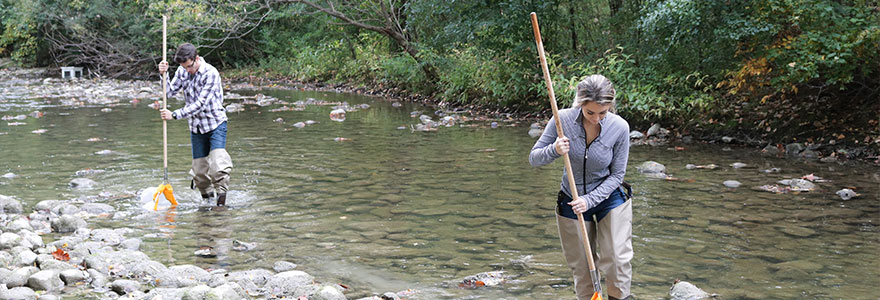Undergraduate
Contact
Faculty of Social Science
Social Science Centre
Room 9438
Western University
T. 519-661-2053
F. 519-661-3868
E. social-science@uwo.ca
Geography and Environment

Geography and Environment students at Western study many of the most engaging and important societal and environmental challenges in today’s world combined with an understanding of geographical diversity through knowledge of places and the processes that shape them. Students can focus on a range of options including social and physical aspects of the environment, environmental change, and sustainability; climate change and society; urban systems and development; geographical information science; and environment and health. Students have a fundamental understanding of the characteristics, processes, temporal changes, and landscapes of social and biophysical systems and their interactions. This broad, integrative perspective makes Western geographers employable in a wide range of occupations.
Strengths and skills Geography and Environment students bring to the workforce:
- Spatial and integrative thinking, analysis, and problem-solving
- Analysis of real-world problems and policy applications
- Field and laboratory data collection and synthesis
- Environmental and social data analysis and statistical interpretation
- Geospatial data acquisition, coding, software, analysis, mapping and visualization, and interpretation
- Information retrieval, meta-analysis, synthesis, and evaluation from diverse sources
- Project planning, management, and design
- Visual and graphical design, geo-media, oral and written reporting, proposal preparation, and presentation
Previous internships Western Geography and Environment students have worked in:
- Field Survey Analyst
- GIS/Data Analyst
- Program Management Analyst
Additional Industries and Roles Geography and Environment students are well-suited for:
- Geographic Information Systems, geo-visualization, and geospatial analysis
- Urban development, urban data, and environments
- Transportation
- Sustainability
- Water, climate, land surface, and ecological systems
- Food and agriculture
- Environmental restoration, conservation, and design
- Environmental quality and hazards
- Climate change in society
- Indigenous communities and enterprises
- Environmental health
- Public policy development and planning
- Energy
- Global development

